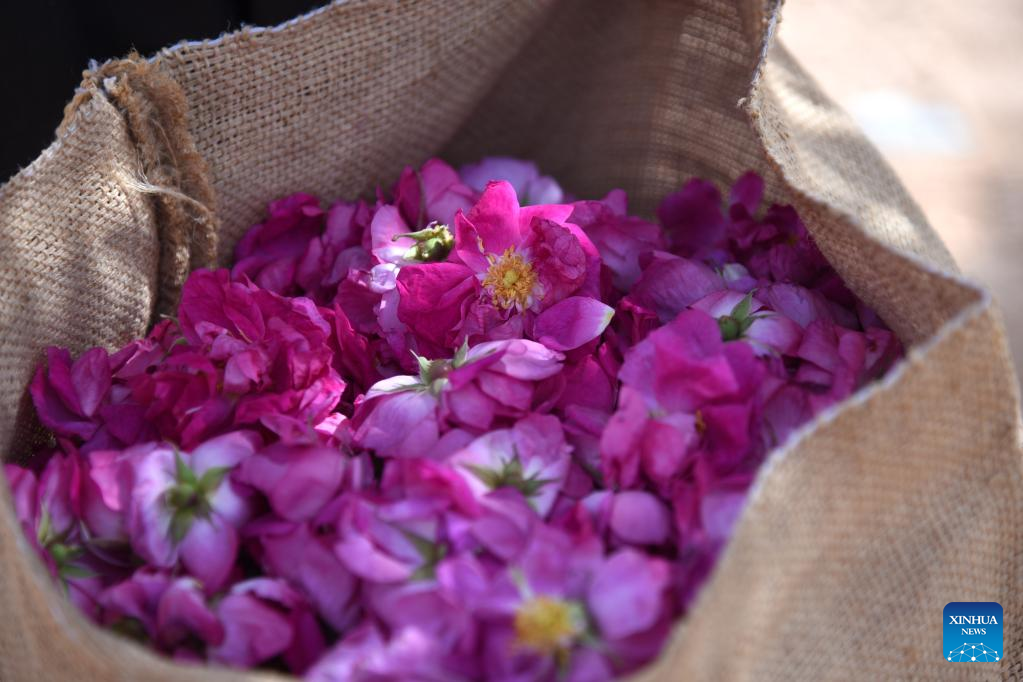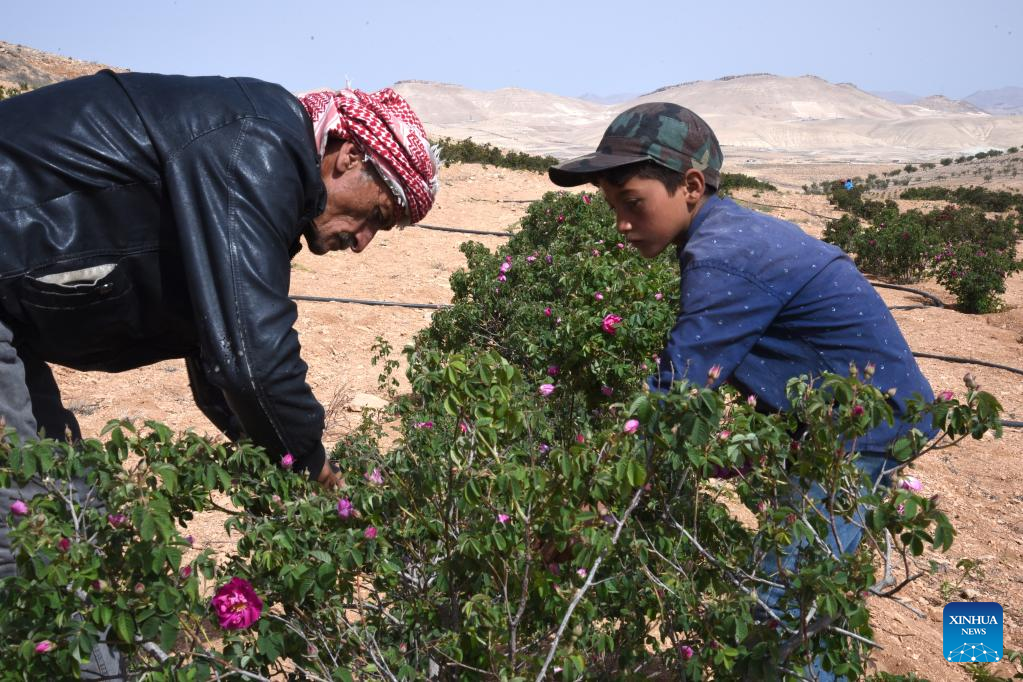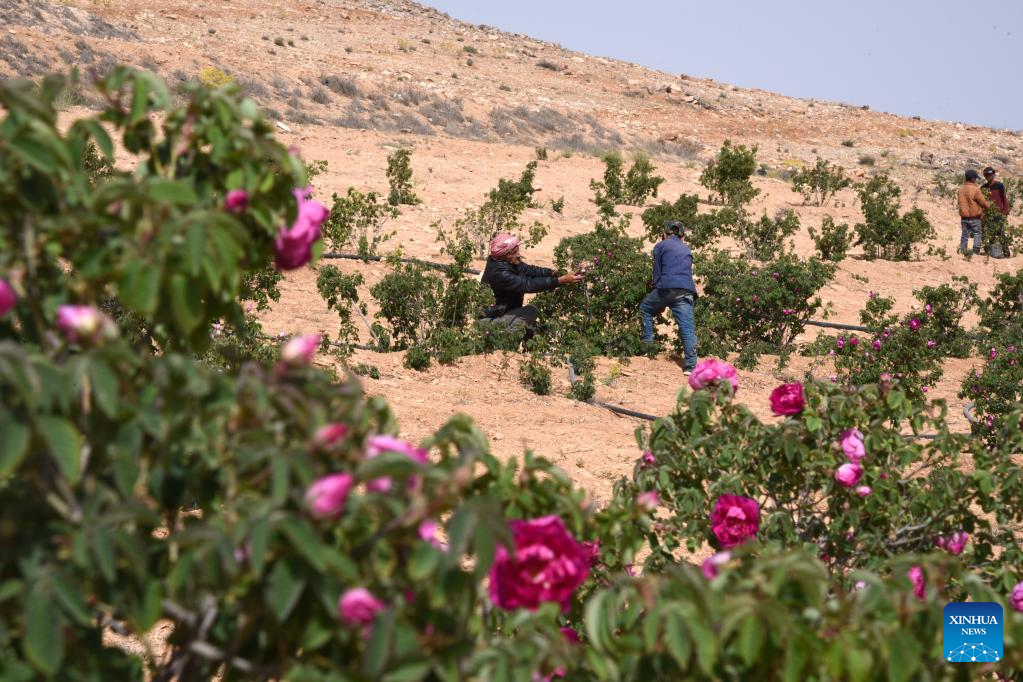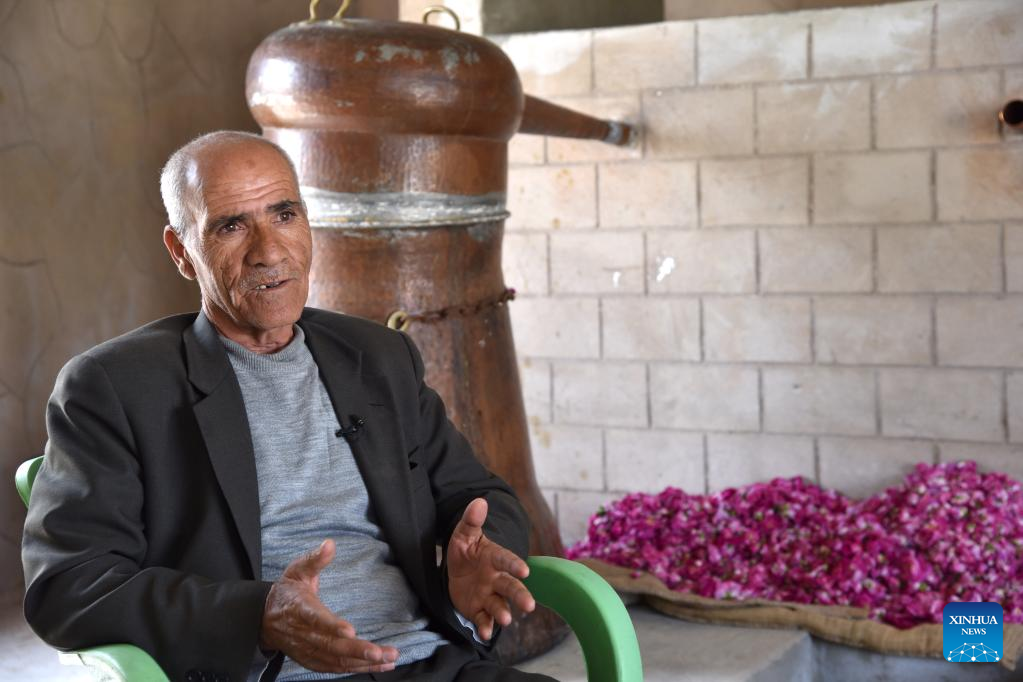
Damascene Roses are seen at the al-Marah town, north of Syria's capital Damascus, May 28, 2022. (Photo by Ammar Safarjalani/Xinhua)
by Hummam Sheikh Ali
DAMASCUS, June 12 (Xinhua) -- At a mountainside in the Al-Marah town north of Syrian capital Damascus, bushes of the famous Damascene Rose sway with the wind, withstanding all weather conditions and actual battles, but are now threatened by U.S. sanctions.
The al-Marah town is believed to be the original hometown of the world-famous Damascene Rose in the foothills of the Qalamoun mountains north of Damascus, whose history goes back to the time when the Romans were said to have brought the rose to England from this region.
In the first two years of the Syrian crisis, the pink double flower, which was regarded as a national product of Syria, missed those who used to take care of it, as the fields of roses in al-Marah became a sort of military zones for the army to hunt down rebels in the nearby towns.
After the liberation of Qalamoun, the farmers were once optimistic about salvaging the rose and carrying on their fathers' legacy. However, the U.S. sanctions have had a longer-lasting negative impact on the Damascene Rose, which is renowned for its special fragrance and heady-scented oil, as 1 gram of its oil was said to be sold in the U.S. for as high as 60 U.S. dollars.
Muhammad Jamal Abbas, a 60-year-old rose farmer from Al-Marah, told Xinhua that the weather condition this year was bad with no considerable rainfall or snow in their town.
Add to that, he continued, the U.S. sanctions have deprived the farmers of exporting the extracted oil, creams, and other products that derive from the rose.
"The foreign merchants who used to buy our products have stopped purchasing them due to the sanctions. Now, we only rely on local markets to sell our products, but the demand is so little," he said.
Furthermore, the U.S. sanctions also prevented the Syrian farmers from having new machines to help process the various products of the rose.
Near his farm, Abbas has a big venue, where some makeshift machinery and old-styled devices are located to press the rose and extract the oil and water out of it.
The venue looks like a time capsule, taking visitors back in history to see the original machinery and equipment.
"I don't know where we are going. We are extremely affected by the U.S. sanctions, and the impact is not little," he stressed.
Abbas further warned that the profession of making products out of the Damascene Rose could come to an end as nowadays farmers are working without any profit, only losses.
Despite all the above difficulties, the man determines not to abandon his farm or roses, recalling that the rose has helped him raise a successful family, priding himself on educating all of his children from the revenues of the rose over the years.
His daughter, who has recently graduated with a chemistry degree, has started helping her father to develop new products, such as new shampoo and facial creams from roses.
Abbas hoped the Damascene Rose would regain its glamour and glory days, and the U.S. sanctions would be lifted soon so that he and other Syrian farmers could have access to foreign markets.
"The Damascene Rose is a beautiful plant," he said. ■

Farmers pick Damascene Roses at the al-Marah town, north of Syria's capital Damascus, May 28, 2022. (Photo by Ammar Safarjalani/Xinhua)

Farmers pick Damascene Roses at the al-Marah town, north of Syria's capital Damascus, May 28, 2022. (Photo by Ammar Safarjalani/Xinhua)

Muhammad Jamal Abbas, a Damascene Rose farmer, speaks during an interview with Xinhua at the al-Marah town, north of Syria's capital Damascus, May 28, 2022. (Photo by Ammar Safarjalani/Xinhua)



